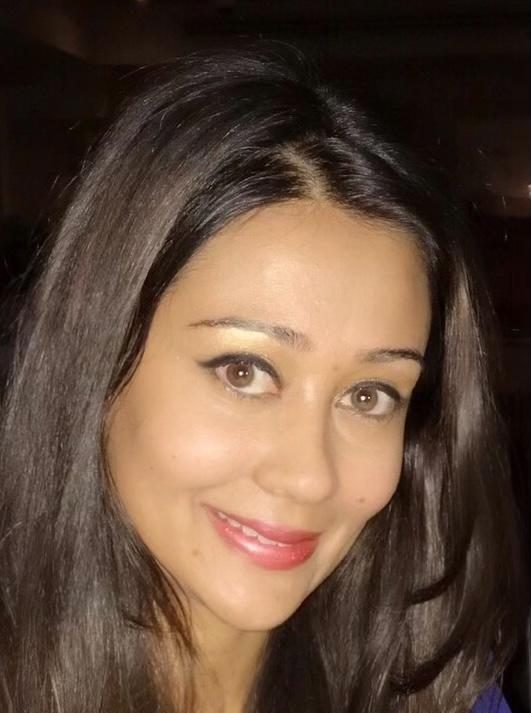
Over the years, a global challenge has been held at this time of year which allows us to pause, reflect and recognize the progress made in promoting women’s rights and to spotlight the work that still needs to be done to champion gender equality and build a more inclusive world. The theme for International Women’s Day 2021 is ‘’Choose to Challenge.’’
In this spirit, Strathmore University Business School hosted a webinar to discuss gender bias, inequality, and accelerating gender parity in business and leadership. The distinguished keynote speaker, her Excellency, Ms. Mmasekgoa Masire-Mwamba, was appointed as Botswana Second Ambassador to the Republic of Germany and has over 30 years of senior-level experience in the field of business development and multilateral diplomacy and has also served as the Deputy Secretary-General of the Commonwealth for a period of six years. The panelists included Mr. Peter Nduati, CEO and Founder of Resolution Group Ltd, Dr. Gladwell Kiarie, Medical Oncologist at the Nairobi Hospital, and Molly Rwigamba, Director at KCB Bank Rwanda Ltd. The session was moderated by an SBS Alumna, Seema DeSouza, Deputy Director, Customer Experience at NCBA group.
Women Leaders Rising to the Challenges Presented by the Pandemic
In the wake of the Covid-19 pandemic, there has been an unprecedented global challenge and call for service for leaders to guide their institutions and communities to adapt to the paradigm shifts and rebuild their business models. Across the globe, women are at the helm of institutions and have been involved with strategizing effective and inclusive Covid-19 responses.
Speaking during the session, Ambassador Mmaskegoa said, ‘’During the Covid crisis some countries that were led by women have outperformed countries led by men and they have done so by exercising the very elements of their femininity, that allowed them to say we have a crisis and this is how we can best respond to it.’’ These women leaders were proactive in responding to the threats posed by the virus and implemented social distancing restrictions early, seeking expert advice to inform health strategies and unifying their countries around comprehensive responses with transparent and compassionate communication. Historians will be recounting the lessons learned by the pandemic in future years. The anecdotes that have emerged from the crisis reflect that having a woman at the head of the table ensured that the effects of the pandemic on gender-based violence, reproductive health services, child care, and other issues were addressed alongside the direct Covid-19 responses. Therefore, the presence of women leaders in national, local, and community level governance has led to effective policymaking that advances human rights, promotes equality, and improves life for those who may be overlooked in society.
Challenging Stereotypes
Although women account for roughly half the world’s population they occupy less than a quarter of political seats. However, Rwanda is an outlier, as there are more women in power than any other country. Nearly two-thirds of parliamentary seats and 52 percent of cabinet positions are held by women. The high participation of women is attributed to Rwanda’s 2003 constitution, drafted after the 1994 genocide, that mandates no less than 30 percent of political seats are held by women.
Ms. Rwigamba said, ‘’Even though the government has given us a platform, there is also this unconscious bias or stereotyping that actually does not allow women to be elevated, so ‘Choosing to Challenge’, I believe, is to challenge that status quo.’’
A popular misconception is that when Senior Leadership job openings become available, there are no women found to be suitably qualified particularly in male-dominated fields such as engineering. Women find themselves being overlooked while their male counterparts are being promoted with varying levels of skill. Many women who may be more qualified for a particular role may find themselves being asked to deputize rather than lead. It is imperative that women become bold and unapologetic to stand their ground and not be pushed into playing second fiddle. In the context of ‘’Choose to Challenge,’’ women need to re-examine what they are doing to challenge this stereotype and how they are supporting other women to make an impact in this world. Women need to stop holding back, find their voices and use them.
Challenging Cultural Norms
Our view of gender roles and what defines us is instilled in us through our childhood experiences, the values inculcated in us by our parents, the media and cultural forces which in turn make us act in a certain way. Speaking during the webinar Mr. Nduati said ‘’The Choose to Challenge theme encourages us to become more deliberate at all times to challenge cultural norms and our own biases when it comes to leadership.’’ Some of the chief barriers to realising gender parity are deep-seated cultural norms. Disrupting the system of cultural norms that keep women subordinate is a complex task but not insurmountable. Both men and women need to take a stand against all forms of discrimination whether they are obvious or covert.
Additionally, maintaining a balance between parenting duties and work has become fairly stressful for women as they juggle their time between a plethora of duties. Seema DeSouza raised the important issue of shared parenting and choosing to challenge the norm of women being seen as primary caregivers and seizing the opportunity to negotiate with partners for more support.
Dr. Gladwell Kiarie commented that ‘’We should seek leverage because marriage is really a partnership. The same way we support our husbands and the same way we nurture our children should be the same support we demand from the partnerships we are in, because we truly deserve it.’’
Single parents must also challenge the assumption that they will be unable to become powerful leaders and still be good parents. Ms Rwigamba highlighted this by saying, ‘’There is this stereotype that as a woman alone it is difficult to navigate parenthood and business. I am a good example of a single woman that has managed to raise three children, run a business and sit on various boards.’’ She went on to explain the importance of delegating responsibilities by using personal assistants and creating support structures. She explained that although it may seem impossible to fulfil all these duties, it is doable with the right mindset.
Challenging the Concept of Failure
If women leaders were asked the question, ‘’Who or what is your worst enemy?’’ The surprising answer is usually ‘’myself.’’ Women tend to struggle with insecurity disproportionately. When something goes wrong professionally, women blame themselves while crediting others when things go right. So why do women hold themselves back and why do they feel so inadequate? The journey of leadership is not always a smooth path for women. Women need the resolve and determination to go after what matters to them despite the challenges that may arise. With power comes responsibility which can be scary and owning failure is particularly difficult. By reframing the concept of failure as an opportunity for reflection and not going back into self-doubt, women will stop berating themselves for perceived inadequacies.
Women place high levels of expectancy and pressure on themselves to be the perfect employee, boss, spouse and mother. Ambassador Mmasekgoa asserted that ‘’We should not camp at the station of becoming the first women in this area or that area, we should camp at the station of where we are, in a post-covid era, where we need to have the best brains, energy and ideas that can support and sustain our communities and our environment.’’ By investing in themselves and displaying resilience, women will not be daunted by failures and challenges that come their way. However, women must resist the urge to overcompensate by obtaining multiple degrees and procrastinating applying for top positions.
In conclusion, the first step to creating real change is for women to secure a seat at the table so they have an opportunity to challenge the stereotypes, norms and conventions that perpetuate gender inequality. Women need to be proactive about equipping themselves with the right skill sets, building their self confidence and seizing the opportunities that arise. Mentoring and supporting upcoming female professionals is also critical. By actively using their power of influence and the platform which they have, women can uplift and inspire others and become role models for future generations of leaders.
About our Women in Leadership Programme
Because of the multiple roles that women play in society and especially in the workplace, the ability to perform effectively and efficiently seems a challenge to many. There are features within you that need to be harnessed and when well-managed will cause a ripple of intrinsic transformation to achieve excellence in all spheres of your life.
The Women in Leadership Programme is designed to address the needs of women in leadership to enable them to succeed as individuals, team leaders, and organizational visionaries. Learn more about our Women in Leadership Programme
Article by Shailja Sharma, Executive Fellow, and Coach
Would you like to share an article? Write to us at sbscommunication@strathmore.edu
Share This Story, Choose Your Platform!
Your journey to business excellence starts here. Subscribe today and be at the forefront of innovation and leadership.









